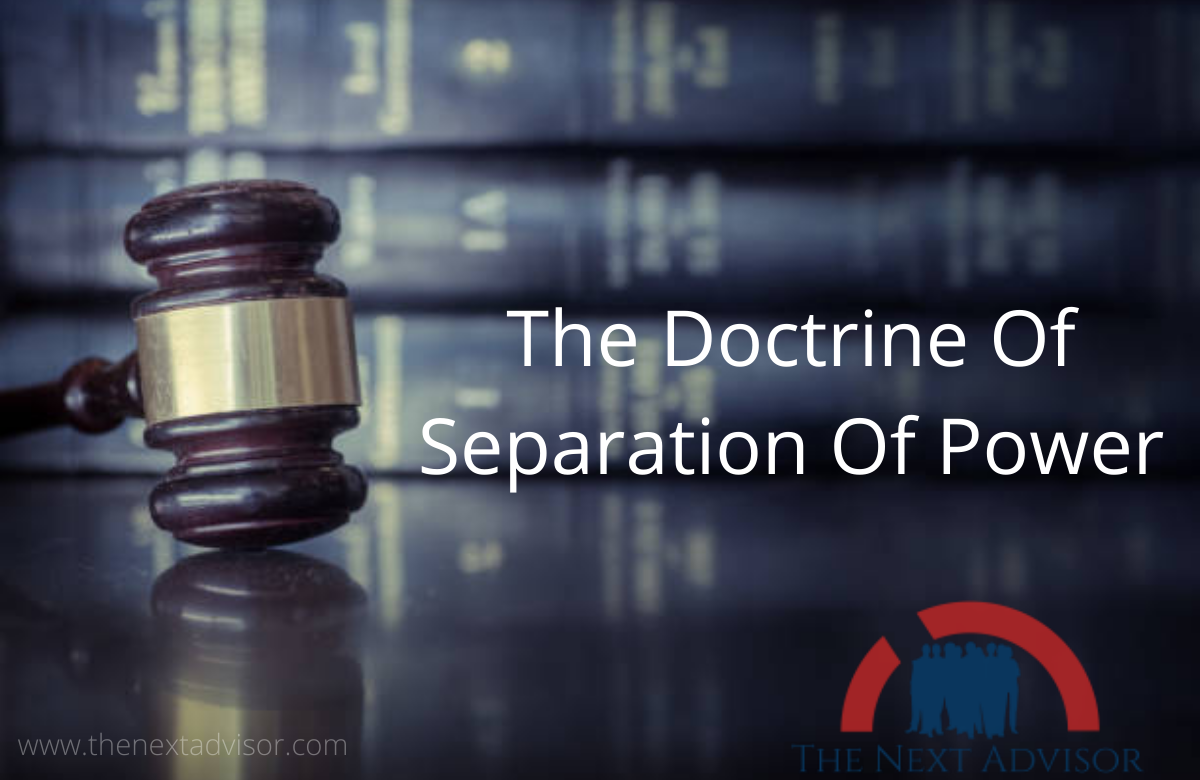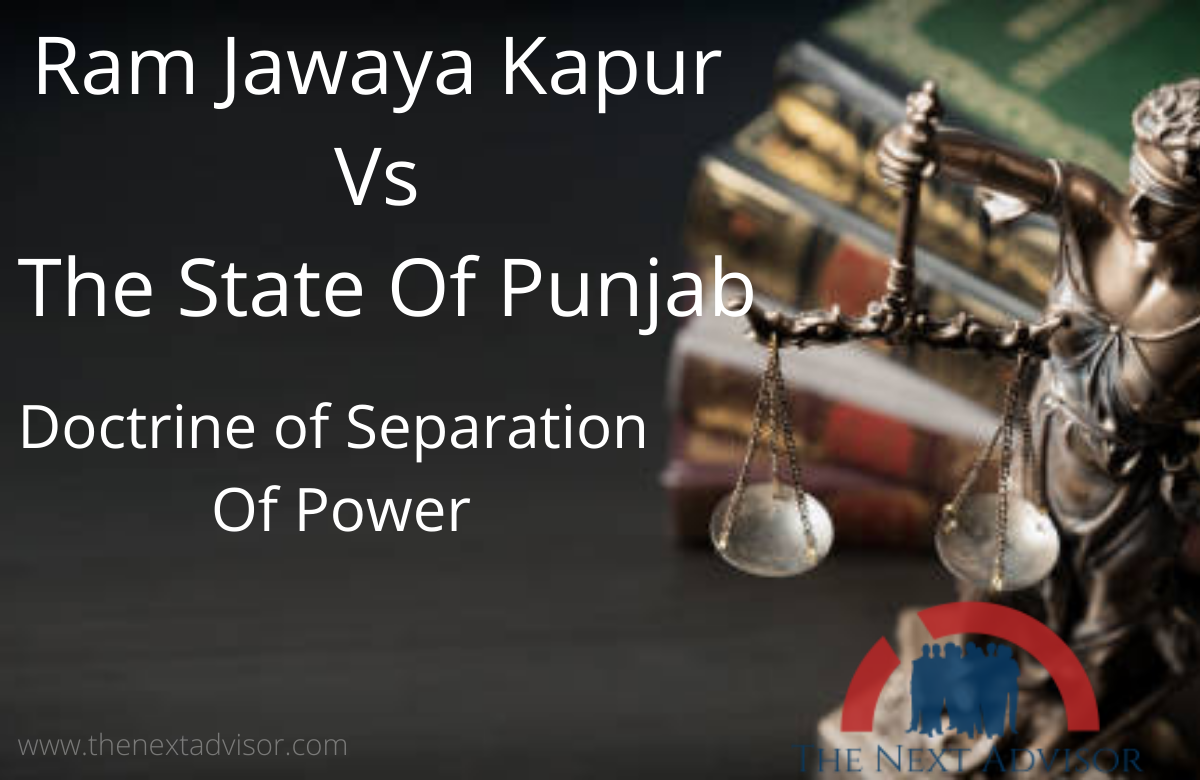INTRODUCTION Of Ram Jawaya Kapur Vs The State Of Punjab
Before 1950, the recognized schools in Punjab used only those books which were prescribed by the Education Department of Punjab. In 1950, the state government of Punjab embarked on the policy of nationalizing textbooks. The Government prepared and published textbooks on a few subjects without inviting them from publishers or authors.
The Government approved only one textbook on each subject for the remaining subjects. In 1952 another notification was passed. According to this notification, the authors of the book were supposed to transfer the copyrights of the book to the State government in place of 5% royalty on the sale of the textbook through a contract. Thus, the publishing, printing, and selling of textbooks were now exclusively with the State government
FACTS OF THE Ram Jawaya Kapur Vs The State of Punjab CASE
The Punjab Government imposed some restrictions on the petitioner’s business of printing and selling school textbooks through a series of announcements (with the goal of nationalizing textbooks). As a result, private publishing houses were forced out of the textbook sector.
The petitioner of Ram Jawaya Kapur Vs The State Of Punjab, then approached the Supreme Court under Article 32 of the Constitution, claiming that it infringed on the petitioner’s fundamental rights, as guaranteed by Article 19 (1) (g) of the Constitution, and that the state’s executive power does not extend to undertaking activities without legislative sanction.
PETITIONERS
The present petition of Ram Jawaya Kapur Vs The State Of Punjab was filed under Article 32 of the Indian Constitution against the notification of the Government passed in August 1952. The six petitioners, who were individuals engaged in the occupation of publishing, printing, and selling textbooks, contented that the Government of Punjab, was not only imposing on them, unwarranted restriction on the regular carrying out of their occupation of publishing books but had altogether ousted the petitioners and other fellow traders from their business.
It was contended by the petitioner that this act of government was not only violative of their fundamental right of carrying any type of trade or commerce mentioned in Art. 19 (1) (g), but was also ultra-vires to the constitutional power vested in the government, as the government is an executive body of the State did not have the power to do so without any specific legislation empowering them to enter into that activity or trade.
RESPONDENTS
The respondent of Ram Jawaya Kapur Vs The State Of Punjab is the Government of Punjab. The State of Punjab maintained that the said action was completely covered under the ambit of their implied executive power as owing to the changing era, the executive now has an increased ambit of powers and functions as opposed to the traditional function of maintaining state security and decorum.
The government further contended that they acted in accordance with the procedure required and hence not only making it completely intra – vires their powers but also in line with the fundamental rights of the petitioner, as the petitioners are free to approach private publishing and selling entities.
ISSUES of The Case Of Ram Jawaya Kapur Vs The State Of Punjab
1. Whether Fundamental Rights of the petitioner was violated or infringed?
2 . What is the extent of executive power?
DISCOURSE
The Apex Court held that the action of the Government did not amount to infraction of the guarantee under Article 19 (1) (g) of the Constitution.

The Doctrine Of Separation Of Power
JUDGEMENT In Detail
Constitution Bench: Js. Mukherjee, Js. V Bose, Js. Jagannadhadas, Js. V Ayyar, Js. Imam While dealing with the issues of the case, the Court had to answer the nature of executive power and the extent of the functions of the executive. In order to determine the nature of executive power, the Court referred to the two Australian cases of the Commonwealth and the Central Wool Committee v. The Colonial Combing, Spinning and Weaving Co. Ltd., and Attorney-General for Victoria v. The Commonwealth.
In the opinion of the Court, the Australian Constitution specifically defines executive power so as to include only maintenance of the Constitution and of the laws of the Commonwealth. But since no such restriction on the extent of executive power is defined in the Indian Constitution, the Court held that the understanding of executive power in the Australian context does not apply to India and cannot be restricted to mere implementations of legislations.
There can be no exact definition of executive function. Executive functions will be the residuary functions after removing the legislative and judicial functions from the state function. India has adopted the British parliamentary system where the president and the governor are formal heads, and the executive will always be subject to the legislature.
The question arises as to what extent the legislature exercises control over the executive. It is not expected that the executive runs to the legislature to seek its permission through special legislation to perform the day-to-day functions. The executive will have the power to issue orders, notifications, etc. to perform its functions subject to article 73 (for the union executive) and article 162 (for the state executive).
According to Article 162, the executive power of a State shall extend to the matters concerning which the Legislature of the State has the power to make laws. Thus, the powers of the Executive run parallel to the powers of the legislature. As long as there is umbrella legislation, the executive will have the power to take decisions.
Also, the Court related on the case of Motilal v. Government of State of Uttar Pradesh to conclude that in order to enable the executive to function, there is no need for a specific law to be already in existence, and the executive function is not merely restricted to implementing such laws.
Backing of specific legislations is only required when the government requires certain extra powers in addition to what they by default poses under ordinary law for carrying a particular trade or business. In cases where such activities require the expenditure of funds, the only requirement is the authorization of the Parliament regarding such expenditure either directly or under the provisions of a statute.
In this case, the action of the executive was approved by the State legislature through the Appropriation Act. The Appropriation Act contained the expenses to carry on the business of publishing textbooks, and the same was approved by the State legislature. Hence, the first contention of the petitioners was rejected.
With respect to the question of violation of FR, the Court held that the government action in question was not in violation of the fundamental right of the petitioner, which is mentioned in Art. 19 ( 1 ) ( g ) of the Constitution of India; as the government by the said notice may have restricted the book used in schools but still, these publishers and authors were free to approach the private book shops for business.
The Court further held that since there was no violation of any FR of the petitioners in the first place, the Government could not be said to have infringed such FR through the notifications.
In Continuing such a conclusion of the Ram Jawaya Kapur Vs The State Of Punjab the Supreme Court observed the following:
1. Our Constitution though federal in its structure, is modeled on the British parliamentary system where the executive is deemed to have primary responsibility for the formation of governmental policy.
2. It is neither necessary nor possible to give an exhaustive enumeration of kinds and categories of executive functions.
3. The Indian Constitution has not indeed recognized the doctrine of separation of powers in absolute rigidity but the functions of the different parts or branches of the Government have been sufficiently differentiated.
4. Indian Constitution is a written Constitution and even the legislature cannot override the fundamental rights guaranteed by its citizens. Because, even if the acts of the executive are deemed to be sanctioned by the legislature, they can be declared to be void and inoperative if they infringe any of the fundamental rights guaranteed under the Part III of the Constitution.
5. The executive indeed can exercise the powers of departmental or subordinate legislation when such powers are delegated to it by the legislature. The executive Government, however, can never go against the provisions of the Constitution or of any law.

























